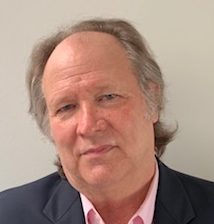Featured Topics
Featured Products
Events
S&P Global Offerings
Featured Topics
Featured Products
Events
S&P Global Offerings
Featured Topics
Featured Products
Events
S&P Global Offerings
Featured Topics
Featured Products
Events
Our Methodology
Methodology & Participation
Reference Tools
S&P Global
S&P Global Offerings
S&P Global
Research & Insights
Our Methodology
Methodology & Participation
Reference Tools
S&P Global
S&P Global Offerings
S&P Global
Research & Insights
29 Oct 2020 | 21:49 UTC — Houston
Highlights
Expects to invest $6 billion on renewables by 2040
Q3 2020 electricity sales up 0.5% year over year
Company is 'agnostic' on the presidential election
CMS Energy has a "growth strategy" that calls for net zero carbon emissions by 2040 and net zero methane emissions by 2030 and plans an investment of approximately $6 billion in installing 6 GW of renewables by 2040, the company told analysts in an earnings call Oct. 29.
The Jackson, Michigan-based company which operates power and gas utility Consumers Energy, also told analysts that its electricity sales "recovered" in the third quarter 2020 with a year-over-year increase of 0.5%, which was led by a 6% increase of higher margin residential sales.
CMS and Consumers Energy president and CEO Patti Poppe said the company's next Integrated Resource Plan will be filed with Michigan regulators "mid-year 2021," and it will be "in support of the governor of Michigan's initiative on carbon neutrality."
Michigan Governor Gretchen Whitmer, Democrat, signed an executive order on Sept. 23 calling for the state's economy to be carbon-neutral by 2050.
CMS has a 10-year, $25 billion capital expenditure plan that will take it through 2030, with approximately $4 billion of that total to be spent on renewables.
Poppe said that 450 MW of electric battery storage is expected in the first year of the IRP plan. The company already has installed two small battery storage systems on its system. The expectation is that with more interconnection points with new solar facilities the more batteries will be needed to condition the voltage and serve to balance load.
In response to a question from an analyst about the possibility of storing hydrogen in Michigan, Poppe said that CMS has joined with the Electric Power Research Institute, or EPRI, in studying the idea and said she believes such storage may be feasible. She said she can envision using a blend of feedstocks in the company's power plants in the future.
Poppe also said that distributed energy resources, or DERs, have to be proven reliable and efficient "before we scale the whole system." She said that during the unfolding of its 2040 net zero plan "will be a good time to prove DERs efficacy."
The company's Consumers Energy utility says its electric generation capacity is 5,650 MW and that it serves 1.8 million customers. It retired seven coal-fired generating units in 2016, and reduced its coal-fired generation to two plants, located in Ottawa County and near Bay City. Poppe said that the company has already reduced carbon emissions 40%.
Its current energy mix is 36% natural gas, 22% coal, 12% pumped storage, 11% renewables, 10% oil peaking, and 9% nuclear energy. It says it also gets roughly 0.2% of its power through market purchases.
"Our energy mix has always included renewable energy thanks to our 13 hydroelectric dams," the utility says on its website. It says it has recently invested in wind parks and solar farms, and has 43 power purchase agreements for renewable energy. "We provide more than 1,000 MW of clean energy."
Poppe said CMS is "agnostic" on the outcome of the looming presidential election. She said the company has done well enough under US President Donald Trump, and would expect a greater emphasis on clean energy under a Biden administration.
She said that if a Biden win leads to new tax credits for renewables she hopes credits will be extended to battery storage.
"Further tax incentives for storage would be useful, but we also think there needs to be more R&D on batteries and hydrogen as fuel cell storage would be useful."
Poppe said that if Biden wins and puts in place a clean energy policy, CMS 's "solar and storage plans can be accelerated."
Biden has said he plans to raise marginal tax rates from 21% to 28%. CMS's CFO, Rejji Hayes, said there are some "pros and cons" associated with such an increase. "A rate increase," he said, "could bring some cash flow benefits."
